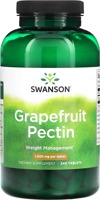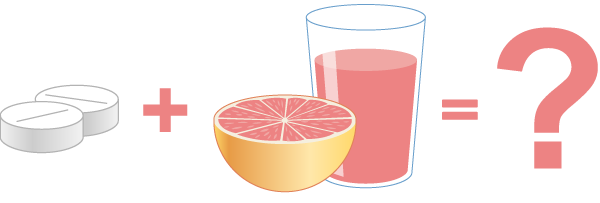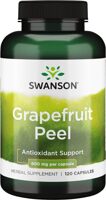Grapefruit is a large citrus fruit that grows in grape-like clusters. Used in ancient Greece and Rome for medicinal purposes, it first showed up in America in 1823 in Florida via a French count. It wasn't until the later that century, however, that grapefruit gained a significant following here. It's a great source of nutrients, including vitamin C, potassium, pectin, folic acid, and fiber. Grapefruit is also low calories and has zero fat and sodium.[1, 2]
Uses
The fruit, peeling oil, and seed extracts are used for medicinal purposes such as:
- Cholesterol
- Atherosclerosis
- Psoriasis
- Weight loss
- Infection prevention and treatment
- Cold/flu
- Headache
- Acne
Grapefruit is also used for:
- Hair growth
- Facial cleanser
- Skin irritations
- Ear, mouth, and nose rinse
- Breath freshener
- Water retention
Grapefruit is used as a flavor additive and added to soaps and cosmetics to enhance their fragrance. It's known as a germ and parasite killer. It's also used as a food preservative.[1, 2]
Health benefits
Grapefruit may help lower cholesterol. It acts as an antioxidant.
There isn't enough evidence to recommend grapefruit for asthma, eczema, cancer prevention, weight loss, psoriasis, sore muscles, hair growth, toning skin, acne and oily skin, headaches, stress, depression, or yeast infections. More research is needed in order to judge the usefulness of grapefruit for these problems, including high cholesterol.
Results are mixed regarding grapefruit's use for cancer treatment and weight loss.
Medication interactions
Grapefruit interacts with many medications, including dextromethorphan (Robitussin DM), estrogens, drugs changed by the liver, blood pressure and cholesterol medications, sedatives, caffeine, Erythromycin, Allegra, and Coumadin.[1]
Everyone is different. Two people on the same drug may experience varying effects from consuming grapefruit juice with their medication. If you are on any type of medication, ask your doctor or pharmacist if you should avoid grapefruit.[3] Generally, when taking medication, it's best to drink water rather than any juice, including grapefruit.
Precautions
Grapefruit is generally safe when used in regular amounts as food and also medicinally when taking recommended doses. Avoid grapefruit when pregnant or breastfeeding. And, steer clear if you have breast cancer or are at high risk for getting the disease.[1] It's also a good idea to avoid pink grapefruit if you have heart problems. In addition, please note that grapefruit seed extract is toxic to humans.[2]
Avoid grapefruit if you are allergic to pectin.[2]
Considerations
- The chemistry of grapefruit is different depending on the species, juice extraction method, and growing conditions.[1]
- Talk to your healthcare provider before consuming grapefruit and its juice, especially if you have chronic health problems.[1]
References
- WebMd.com; "Grapefruit"
- Drugs.com; "Grapefruit"
- U.S. Food and Drug Administration; "Grapefruit Juice and Medicine May Not Mix;" February 2012
- Self NutritionData; "Grapefruit, Raw, Pink, and Red, All Areas"
Grapefruit News on PricePlow
-
Apr 22, 2023 
Product News
Swanson Grapefruit Pectin was created.
Categories: Fat Burners, Grapefruit, Pectin
Sign up for future Grapefruit news!
Click the button below to sign up for future Grapefruit news, deals, coupons, and reviews!

